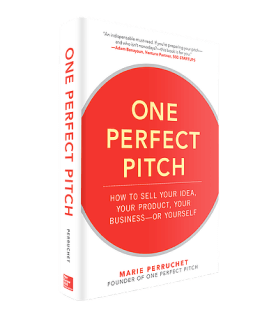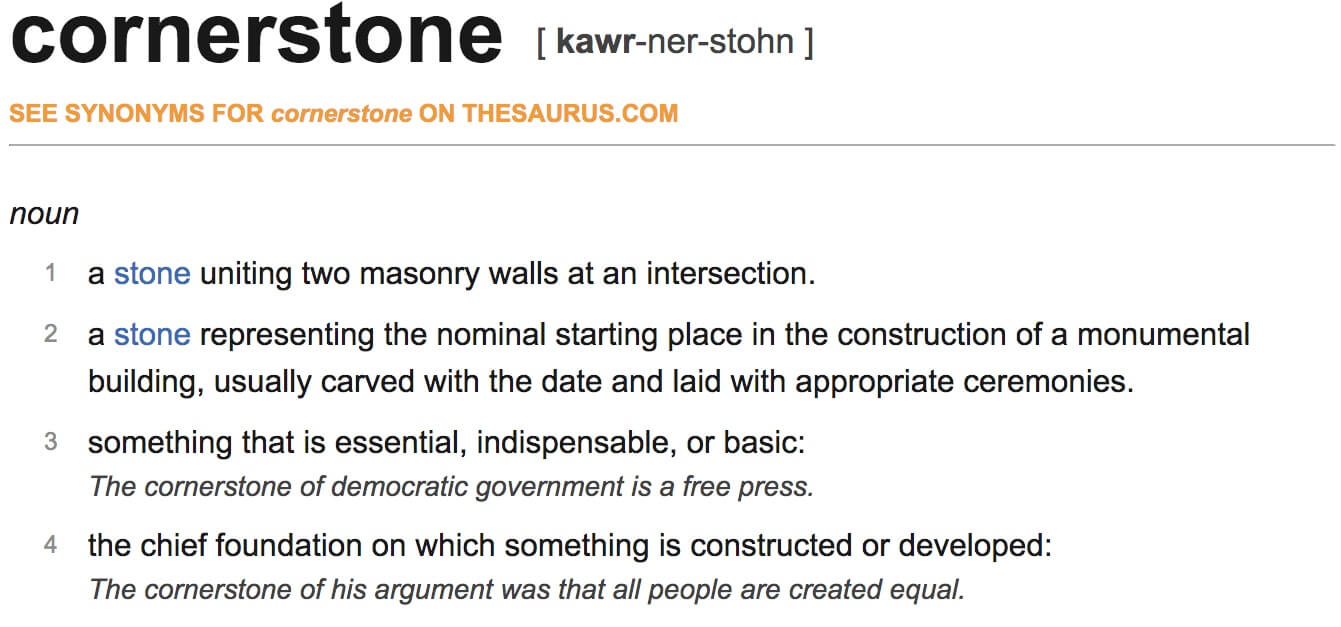
To learn more on the subject of “elevator pitch”, especially if you are a startup founder or a small business owner, I recommend the book “One Perfect Pitch” by Marie Perruchet
We have all probably heard that people tend to make judgments about their new acquaintances as quickly as in the very first seconds. For example, in an article about snap judgments by Chad Boutin from Princeton University he describes a research study that confirms that such judgments can be made just by a glance, without even hearing a word from the person!
By the same token, when you are invited to a job interview, the most impactful moment that contributes to at least 80% of the decision-making by the interviewer is this so common, so seemingly simple and at the same time one of the most challenging questions you will undoubtedly hear at the beginning:
So, tell me about yourself!
You may hear variations of this question. The interviewer may start with a bit of small talk, and then engage you in a real conversation with something like:
So, what do you do?
In both cases, and in any similar question where the interviewer invites you to introduce yourself, to present your so-called “elevator pitch”, this is your chance to make the first impression which will have tremendous impact on the further interview flow, and on this job opportunity.

To learn more on the subject of “elevator pitch”, especially if you are a startup founder or a small business owner, I recommend the book “One Perfect Pitch” by Marie Perruchet
But what about other commonly asked questions, you may wonder, such as What are your weaknesses? or Tell me about some of your achievements. Aren’t they even more significant because they prompt for more detailed answers? And in general, what exactly does the interviewer have in mind while asking me all these questions?
Yes, those other questions have their place and value, and we will discuss them in our later conversations. For now, let me just mention briefly that all those “other” questions generally belong to either “tell us more” or “background checks” question types that either invite you to elaborate on some aspects of your “elevator pitch”, or to make sure there are no hidden catches that will disqualify you as a candidate.
As for the purpose of asking all these questions and how exactly your answers will help the interviewer to make the judgment, let’s start with understanding the context.
So, what does the interviewer expect to hear, and what exactly can you say and do to make an excellent first impression?
To create the right mental stage for comprehending the interviewer’s mindset, let’s try this exercise. Let’s imagine that it is YOU who is hiring someone to do some job for you. Perhaps you want to do a home kitchen renovation and you must choose between 3-4 contractors who offer you their services. You are a very busy person, so you have allocated 30 minutes for each contractor to hear what they have to say, and then you will have to move on to other tasks like other project deadlines, strategic meetings with your management (or with your girlfriend), etc. What do you want to hear from each contractor?
The most common questions would be:
Besides these explicitly asked questions, there will also be implicit things you will be looking for such as:
As you can see, implicit judgment has a lot to do with feelings and boils down to the main question:
As we continue with our exercise and remember that it is YOU trying to choose among your kitchen renovation candidates, you will probably agree that you will actually make your decision based on IMPLICIT stuff rather than explicit, and the explicit questions you are asking will contribute to your ultimate feeling: “Do we have a fit?” Moreover, if you give this topic a little more thought you may discover that you have something like a vision of an ideal candidate in your mind…
Now let’s put ourselves in the shoes of our contractor candidate and imagine how they might answer your explicit questions in order to make you feel that they are a fit:
Does the above leave the impression that this contractor knows his stuff? For me, the answer is “absolutely yes.”
And what if their answer is like the one below?
— Hey, Natalie! By the way, I knew someone named Natalie, when I was back in college, we even dated for a while. It didn’t work out after all... OK, so my name is Nick, I am 42 years old, I have 2 kids, who, you may say, are not kids anymore – you know, one is a college student, another is graduating from high school this coming summer. They are good kids, you know, although a little lazy, I would say, they should study harder. My wife, however, likes reminding me of the years when we both were dating, you know, she keeps saying: “you were lazy just as they are, weren’t you?” Well, you know, she is right at that, which makes me laugh 😊 Anyways, what was the question, again?
So, what’s your impression? How interested are you, a potential client, in your contractor’s personal life? Not at all. You want the answers to be matter-of-fact and to the point and leave you with the feeling that you are not wasting your time. There is no better way to lose a potential employer or client than to show them disrespect, including disrespecting their time – the most valuable resource we can have.
Now let’s get back to our job interview situation and put ourselves into our interviewer’s shoes. Here I am as an interviewer, asking my candidate: “Tell me about yourself, Nick!” and here’s what I would like to hear:
This person shows me that they respect my time, and not only mine – they respect their own time as well!
To summarize (and Mr. Simon is nodding in agreement), the answer to the “Tell Me About Yourself” is the foundation, the cornerstone for further conversation. And if you now wondering about what exactly the cornerstone is, go and read Dictionary.com which says the following:

Now that we understand the general concept of why this question is asked and what the answer is supposed to include, let’s get down to more specifics that will help you present your best self.
As we saw in the above example, you are not particularly interested in the “Who” of your contractor candidate: his personal life, his age, his family situation, his hobbies. Rather, you want to know the “What” and “Why”:
Not necessarily in the above order, of course.
To give you an example, I once interviewed a man named Alan for a position of Project Manager in data privacy industry, and here’s his answer that I liked:
In addition to being very matter-of-fact, he was nice and friendly and capable of listening and adjusting his assumptions on the go. You could say from his demeanor that he was agile by nature!
We did hire Alan and never regretted our decision. I assure you it is always a pleasure for a business-oriented person to meet someone who appreciates the most valuable assets on Earth – time, and the modern workplace does demand being business-oriented.
To give you a sample of answers to avoid, I remember interviewing someone named Victoria for the role of an Executive Assistant. Victoria was quite a conversationalist which may have been fine in social context, However, the purpose of the interview was obviously related to the job she was interviewing for, and that was by no means a job of a radio host or a DJ where, I figure, the more you talk the better.
So, our 30 minutes of a face-to-face consisted of a dialog very much like this:
It is not necessary to continue; I am sure you are getting it. I assure you it was exactly like this for the whole 30 minutes I survived, being myself a polite person. I guess the extreme suffering may have been written in my face – unfortunately, Victoria did not see it, she was too preoccupied with the stories from her past, and I suspect she was not the kind to notice much around herself...
To nail it, there was an ending to that story which I think was the funniest: at the end of the 30 minutes, when I had a chance to ask Victoria why she thought she may be a good fit for us, she looked at me with astonishment:
Although she may have been a gifted person. Victoria had little chance of someone hiring her because she was too full of herself. They say that everyone is ultimately interested in themselves, and that includes a hiring manager who is interested in their own objectives, and not in the least in Victoria’s glorious past. She had her chance of learning and listening, but she instead spent it on talking about completely irrelevant things.
— Hey Natalie, enough beating around the bush! – you will say impatiently at this point. — Just give me the essence, what exactly should I do to create that awesome first impression? How do I give the best possible answer to the question “Tell me about yourself”?
We are only discussing soft skills in this article which are relevant for pretty much everyone, while hard skills are of course different depending on the job.
Agreed. Let’s summarize what factors will contribute to the decision of the hiring manager, whether the candidate qualifies as a “perfect fit”. Here is my list:
In our future posts, we will take a closer look at each of the above factors and will review multiple samples, both positive and negative. In addition, we will discuss how the answer to the question “Tell me about yourself” may have different nuances depending on whether you are:
About the Author: Natalie Lihacova is a co-founder and CEO of Teammate.Exec and Mr. Simon. She has over two decades of experience leading people and running businesses. Before switching her career to Information Technology and Business Management, Natalie used to be a musician – a singer and a choir director. She is passionate about helping people discover their true potential as professionals.
You don't have to be alone in your job search!
Mr. Simon invites you to join the Friends of Mr. Simon Meetup Group that supports both individuals seeking their next job role and working professionals. Members of our network come together to learn and practice new skills and network with others through our regular interactive events where they establish meaningful connections and have a chance to promote their personal brand and stand out in the marketplace.
Group membership is free of charge, courtesy of Mr. Simon.
Join our Friends of Mr. Simon Meetup Group to become part of our growing and supportive community!
Meanwhile, you can practice answering over 150 common job interview questions by engaging in a mock interview with Mr. Simon. As an artificial being, his undeniable benefits include: